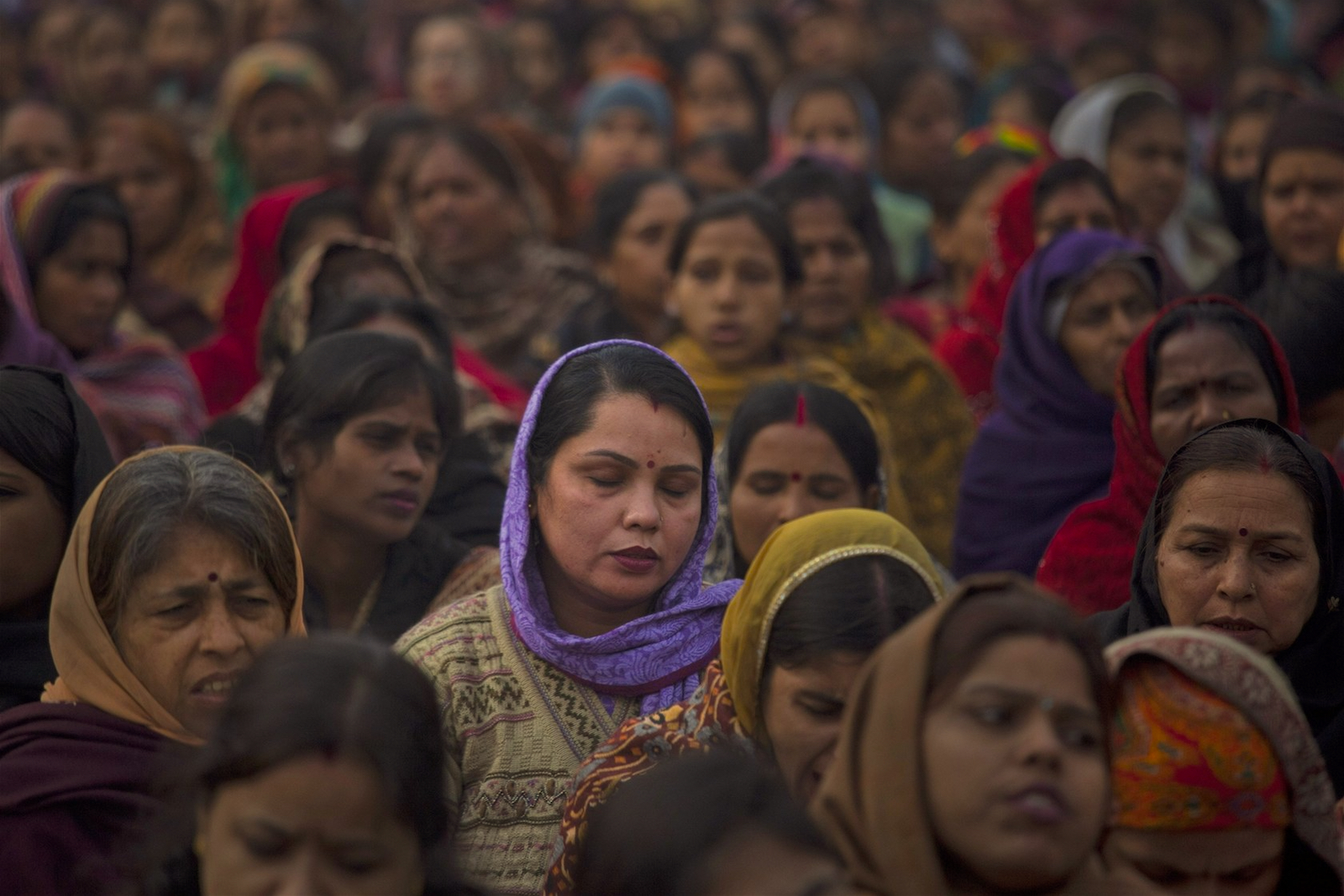
Culture
India’s Marital Rape Problem
Marital rape has been widely debated in India. India unlike other developed nations has yet to criminalize marital rape. Activists and Indian media endorse the opinion that India’s patriarchal society makes it necessary and imperative that marital rape should be criminalized. On the other hand, a more orthodox view remains that marital rape cannot be criminalized because of the sacred nature of marriage in Hinduism and how criminalizing marital rape would destabilize the institution of marriage.
Other than the reasons endorsed by the government, there are numerous causes that can be attributed to the existence of marital rape in India. The primary cause being the position of women in Indian society.
Marriage is viewed as a sacrament in Hinduism with the wife being viewed as under the possession of the husband. This has been used as a defense by the legislature against the criminalization of marital rape. When the matter is further analyzed, it can be concluded that the issue goes much deeper.
Due to the archaic rule that marital rape is not easily recognised as an offence, it is assumed by the law that, marriage refers to the wife giving consent to all the “matrimonial obligations” including sexual intercourse. Even though India as a nation is based on the theory of equity, it still has not recognised the right a woman has in controlling marital intercourse as a component of equality. As the nation lacks any sort of legal provisions regarding marital rape, the victims’ only resort is to go to court. Courts have various methods to identify marital rape and have given strict punishments but due to the lack of legal provisions, they are bound and hence cannot describe “forceful intercourse by a man upon his wife” as marital rape. Hence, the Judiciary is not enough and it requires the help of the legislature. The laws have to adapt to the changing reality of society.
The government presented the case to Delhi High Court and stated two reasons against the criminalization of marital rape. First, that marital rape cannot be criminalized because marriage is sacred and the criminalization of this act in the Indian context would lead to the destabilization of society. Secondly, it should not be criminalized because of the huge number of fraudulent cases that may be filed against husbands.
It is necessary to debase the assumptions on the part of the government and other Orthodox institutions. One cannot claim marriage as a sacrament and remain ambivalent about such a heinous crime perpetrated against a married woman. Numerous laws protect married women from domestic violence. If acts like the Domestic Violence Act of 2005 do not affect marriage as an institution then it is hypocritical to not treat marital rape as a form of domestic violence. Secondly, all crimes see a number of fraudulent cases being filed but this defense is only used when it comes to gendered laws that specifically concern women.
The causes behind a crime of this sort can be traced back to the social position given to women in Indian society. Historically, Indian women have been considered to be owned by their fathers and later their husbands. Hence, rape can, to a certain extent, be equated to a crime against property. This is why in the ancient times the penalty against rape also involved paying compensation to the victim’s father or husband. Since the wife is considered chattel of the husband and a man cannot commit a crime against his own property, the question of marital rape doesn’t arise at all. Hence, the fact that males have to establish ownership over a woman after marriage makes a married woman more susceptible to being exploited by her husband. It is even evident in Hindu Law and Muslim Personal Law that a woman is treated as inferior to a man. Her existence stems from her relation to a man; her father or husband. Hence, she cannot say that a man who has “ownership” over her has violated her or committed a crime against her.
The Indian government has argued that marital rape cannot be criminalized because what might seem like rape to the wife may not be rape in the eyes of others. This statement hints at how regressive Indian society is and has become a standard defense in rape cases. Rape is only about the victim and his or her consent. The crime is committed when the woman feels violated. That is the only standard that must be looked at. Social perception of the incident or the woman’s behaviour can play no role here. Hence, it doesn’t matter whether there is a disparity between the views of the wife and others. This cannot be a yardstick to deny her justice and say that what happened to her was not rape.
Allowing spousal rape and not criminalizing it, effectively means that human dignity can be accorded lesser value in the case of a woman when she is married. It is inherently wrong and problematic to assure dignity and sexual autonomy to the husband and not the wife. The argument that the act cannot be criminalized to protect the stability of the institution of marriage is base and illogical. Only when two partners are given equal rights over their bodies can the “sacred” institution of marriage thrive.
Countries like the UK, United States and others have criminalized marital rape. This is a testament to the fact that India is holding onto an archaic and regressive law. It is illogical, ethically and morally wrong. Rape is a reprehensible crime whether a woman is married or not. It is a crime against humanity. It is unfortunate and deplorable that the Modi government chose to defend this ‘institution’ of marital rape.
